Lemon zest is one of those ingredients that can quietly transform a dish. Just a little bit of that yellow peel adds brightness, aroma, and a pop of citrus flavor to baked goods, marinades, salads, and even cocktails. But let’s be real—sometimes you cut open the fruit drawer only to find you’re out of fresh lemons. I’ve been in that exact situation while baking, and instead of giving up, I reached for other ingredients that did the trick. The good news? There are plenty of great lemon zest substitutes that can save your recipe without losing that citrus kick.
Why Look for a Lemon Zest Substitute?
Lemon zest is the outer yellow layer of the lemon peel, packed with essential oils that provide concentrated flavor without the tartness of the juice. If you don’t have fresh lemons, you’ll need something that adds citrus brightness or at least a similar aromatic note. The right substitute depends on whether you’re baking, cooking savory dishes, or making drinks.
1. Lemon Juice

The simplest substitute is lemon juice. It won’t give you the same aromatic oils as zest, but it does bring tang and freshness. Use two tablespoons of lemon juice for every teaspoon of zest. Keep in mind that juice adds liquid, so adjust your recipe if you’re baking. I often use lemon juice in dressings or marinades when zest isn’t available.
2. Dried Lemon Peel

If you’ve got dried lemon peel in your spice rack, you’re in luck. It’s basically lemon zest that’s been dehydrated. Just rehydrate it in a bit of water before using, or toss it straight into soups and stews. Use half the amount of dried peel compared to fresh zest since it’s more concentrated.
3. Lemon Extract

Lemon extract is made from lemon oil and alcohol, making it a strong substitute. A few drops can replace a teaspoon of zest in baked goods or frostings. Be careful not to overdo it—lemon extract can taste artificial if used too heavily.
4. Orange Zest
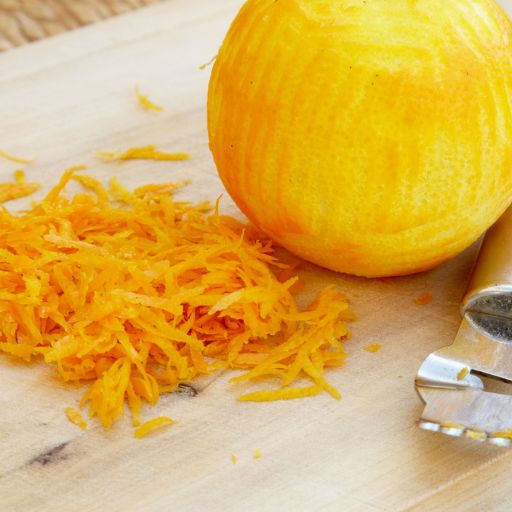
Orange zest has the same citrus oils, though it’s sweeter and less tart than lemon zest. It works especially well in desserts, sauces, and salad dressings. Replace it in equal amounts, and you’ll get a softer citrus flavor with a hint of sweetness.
5. Lime Zest

Lime zest is tangier and slightly more bitter than lemon zest, but it makes a great substitute in most recipes. It shines in marinades, cocktails, and baked goods where you want that fresh citrus punch. Use it one-to-one for lemon zest.
6. Grapefruit Zest

Grapefruit zest brings a bitter-sweet citrus note that can stand in for lemon zest in baked goods or sauces. It’s stronger in flavor, so start with half the amount and adjust as needed. I once swapped grapefruit zest into a cake recipe, and it gave a unique, grown-up twist.
7. Citrus Extracts (Orange or Lime)

If you don’t have lemon extract, orange or lime extract can be used in a pinch. They provide citrus aroma without extra liquid, making them perfect for frostings, cookies, or drinks. A drop or two equals a teaspoon of zest.
8. Citric Acid (for Baking)
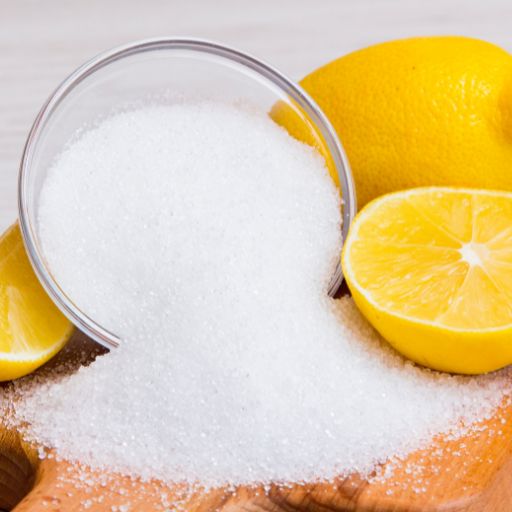
If you only need the tang, not the aroma, citric acid can be a good substitute. It’s often sold as “sour salt” and adds acidity without liquid. Use a pinch in baked goods or candy recipes where lemon zest is meant to boost tartness.
Tips for Using Lemon Zest Substitutes
- If you want aroma: Use citrus zest or extracts.
- If you want tang: Use lemon juice or citric acid.
- Adjust for liquid: Lemon juice adds moisture, so reduce other liquids if needed.
- Taste as you go: Some substitutes (like extracts) are very strong.
Final Thoughts
Lemon zest may be unique, but it’s not irreplaceable. From lemon juice to orange zest, lime zest, or even citric acid, there are plenty of ways to bring brightness to your cooking without it. Personally, I keep lemon extract in my pantry—it has saved more cakes and cookies than I can count. Next time your recipe calls for lemon zest and you don’t have any, one of these eight substitutes will step in and keep your dish zesty and delicious.

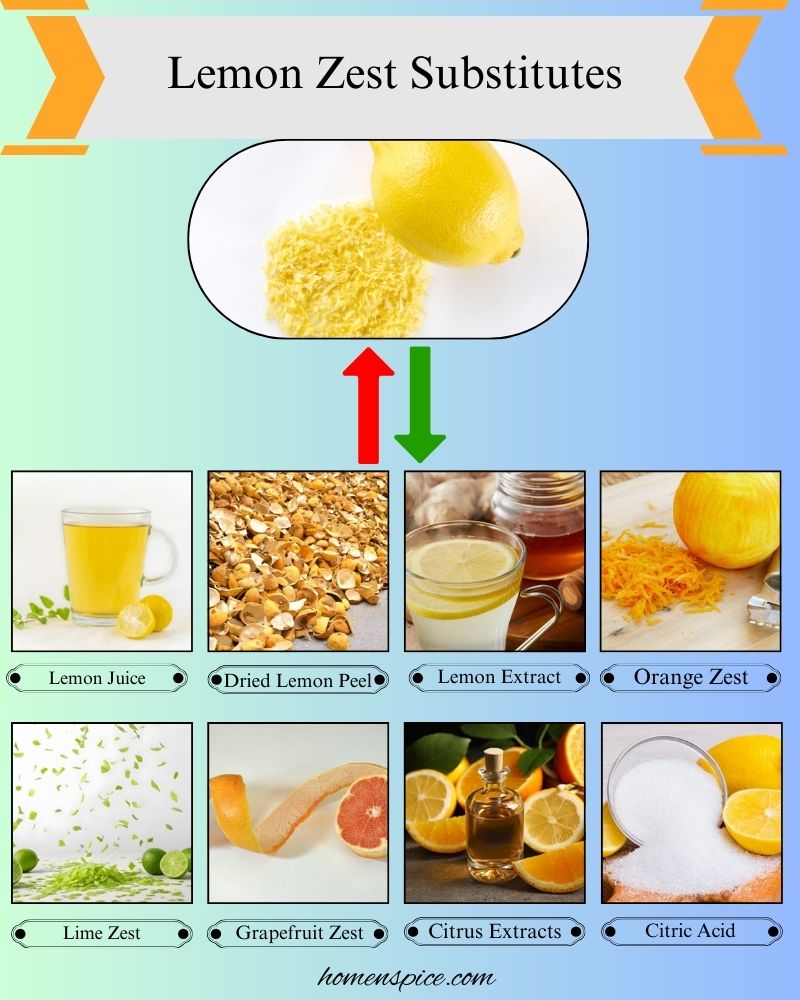

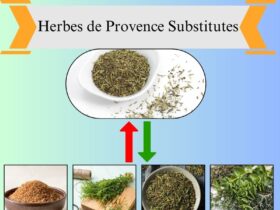

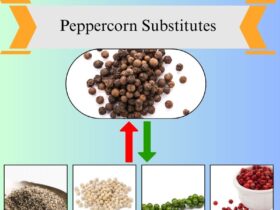

Leave a Reply